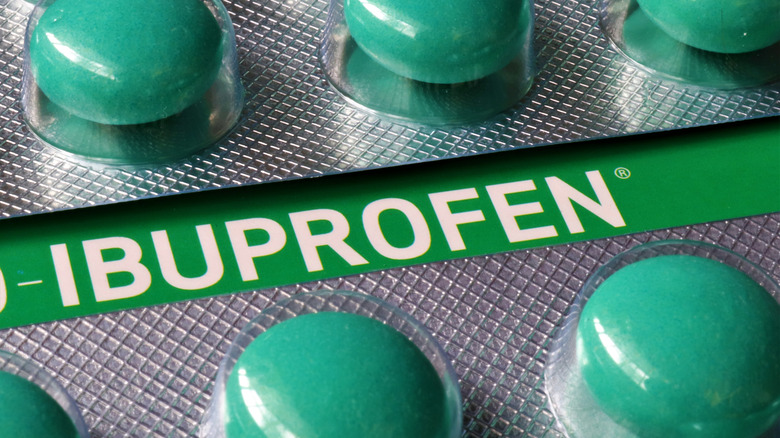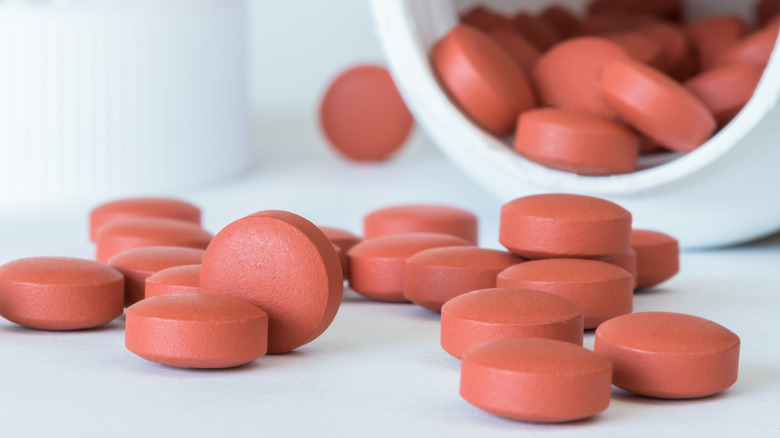What Happens When You Take Too Much Ibuprofen
Ibuprofen is an over-the-counter nonsteroidal anti-inflammatory drug (NSAID) that is effective at treating minor aches and pains, as well as fever. However, taking too much can lead to some serious side effects (via MedicalNewsToday). When taking any medication, it is important to follow dosing guidelines closely. Read the instructions on the label for dosing information or adhere to your doctor's instructions. The maximum daily dose for ibuprofen is 1,200 mg for adults and 40 mg/kg per day in kids.
Side effects of ibuprofen include stomach pain, nausea, vomiting, heartburn, gas, constipation, and diarrhea (via Healthline). These are usually mild, and many people use ibuprofen with no side effects. However, taking too much of the medication or taking it for too long can lead to serious side effects, including ulcers and bleeding in the stomach, heart attack, stroke, increased blood pressure, decreased kidney function, and liver failure. The risk of these complications increases if you have underlying medical conditions.
Is it possible to overdose on ibuprofen?
Taking too much ibuprofen can lead to an overdose (via Healthline). Symptoms of an ibuprofen overdose include blurred vision, ringing in the ears, diarrhea, heartburn, nausea, vomiting, abdominal pain, dizziness, rash, sweating, and chills (via Mount Sinai). In more severe cases, a person may experience low blood pressure, decreased urine production, difficulty breathing, wheezing, confusion, convulsions, severe headache, and seizures.
If you or a loved one has taken more than the recommended dosage of ibuprofen, call your local poison control center. In the United States, you can call 1-800-222-1222 24 hours a day. If possible, have handy the person's age, height, weight, and gender, as well as how much ibuprofen they took and when was the last time they took it. If you are unable to use a phone, go to the nearest emergency room. Don't delay taking action, as some people may not experience symptoms right away and it is best to get care as soon as possible.


